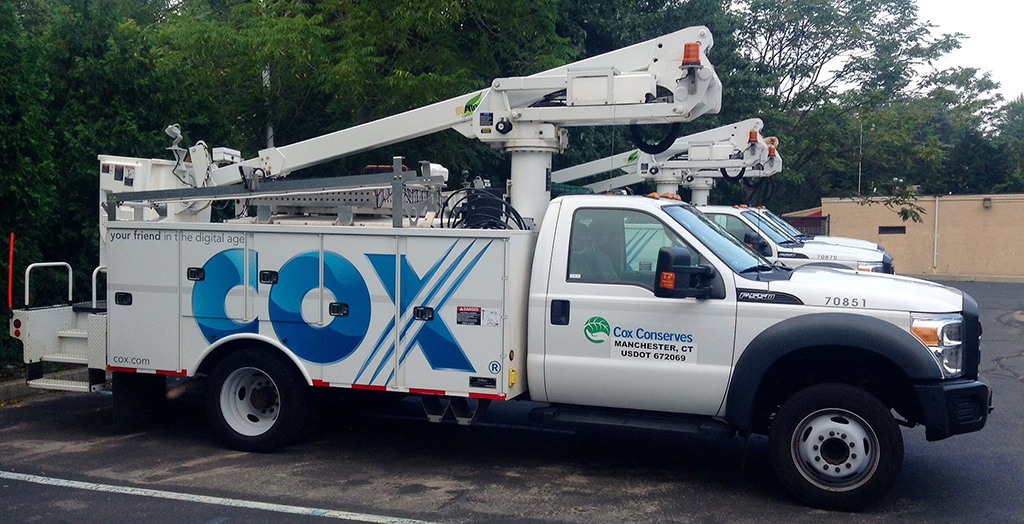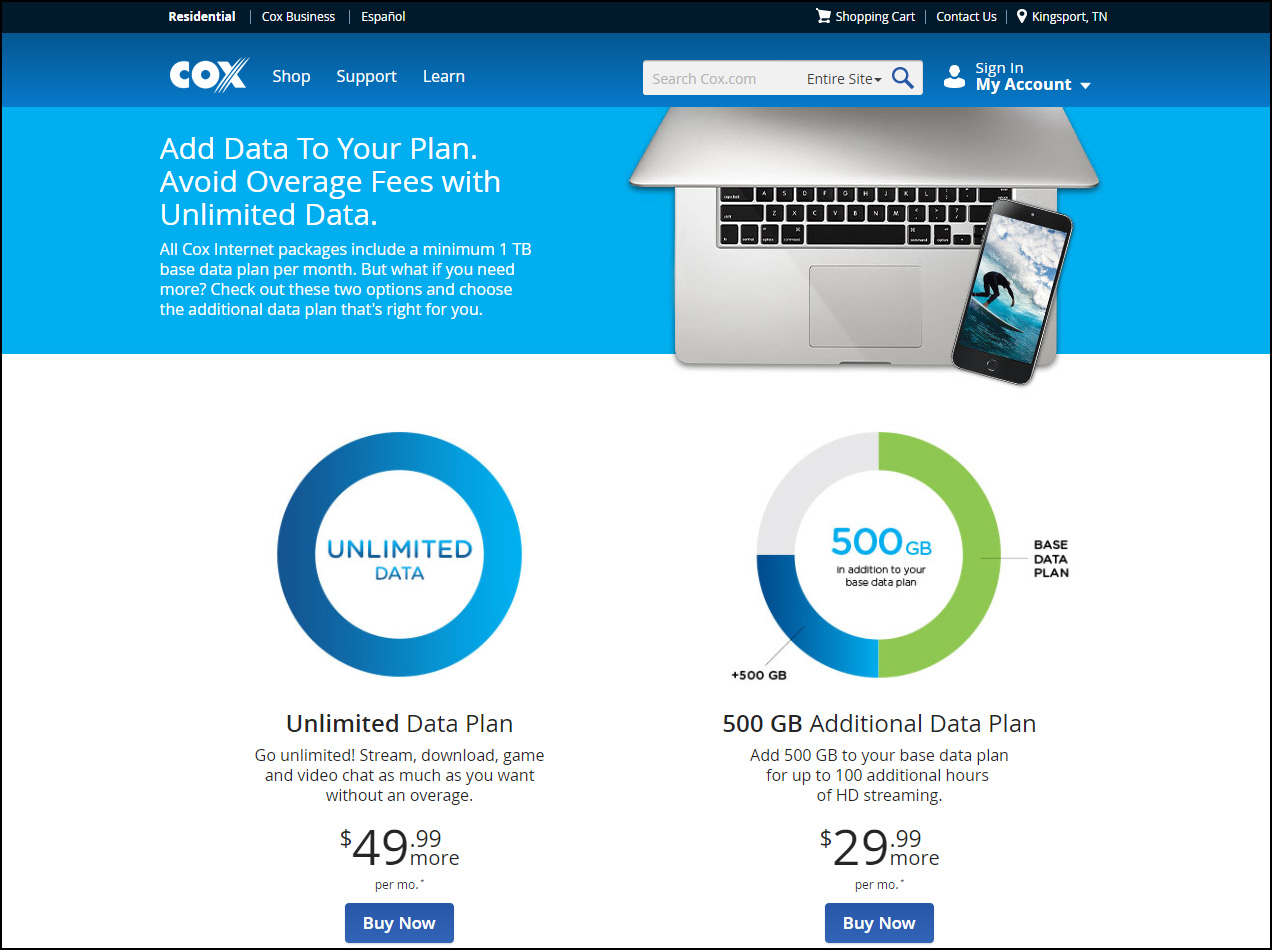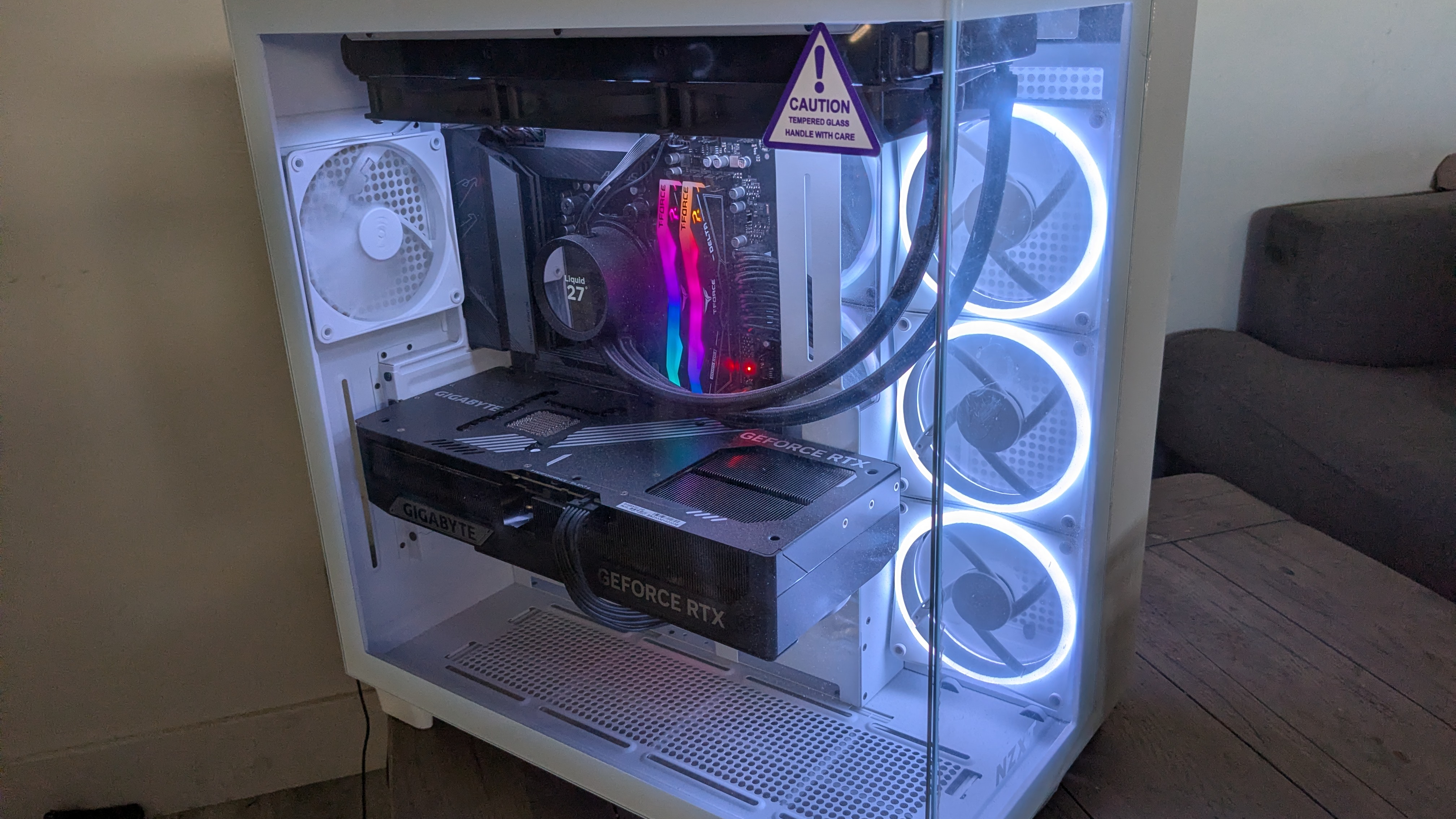Third-largest American ISP will charge customers an extra $50 per month for 'unlimited data'
For Cox customers, going over the data cap is going to cost you, one way or another.

It doesn't matter that 4K video streams and digital distribution of increasingly bigger games and other cloud content are becoming the norm, broadband providers are still moving away from unlimited data. The latest is Cox Communications, the third-largest ISP in the US, which is now charging some customers an additional $50 per month if they want to ditch their data cap and avoid overage fees.
Cox does not impose data caps in all of its territories, though it has been expanding its reach as of late. Back in June, Cox sent a note to customers in New Orleans telling them they would face a $10 fee for every 50GB above 1TB (1,024GB) they used each month. In the note, Cox claimed these data caps only affect around 2 percent of its customers.

"An overwhelming majority of data is consumed by a very small percentage of internet users," a memo to employees documenting the changes reads, according to DSLReports. "The new choices are great options for the small percentage of heavy users who routinely use 1TB+ per month and prefer a flat monthly rate, rather than purchasing additional data blocks."
The other option available to Cox subscribers is a $30 add-on that allots 500GB of additional headroom, for 1.5TB of data per month. Either way, "unused data does not roll over," Cox says.
Behind Comcast (No. 1) and Charter (No. 2) in the US, Cox currently services around 6 million customers (residential and business) in 18 states. It imposes data caps in various cities in Arizona, Arkansas, California, Connecticut, Florida, Georgia, Idaho, Iowa, Kansas, Louisiana, Nevada, Nebraska, Ohio, Oklahoma, Rhode Island, and Virginia.
This is a growing trend, it seems. A recent broadband analysis by BroandbandNow found that nearly 200 ISPs in the US implement data caps, and that figure might be low. Cap sizes range from as little as 3GB up to 3TB, with a wide range in between.
"Statements from Internet providers suggest that data caps are a necessary step to combat network congestion. Opponents of data caps believe that the motivation for data caps has more to do with recovering declining cable revenue or creating a roadblock for streaming services like Netflix. Whichever side you believe, the outcome is the same—data caps are becoming commonplace," BroadbandNow adds.
Keep up to date with the most important stories and the best deals, as picked by the PC Gamer team.
Meanwhile, the FCC is on a path to dismantle net neutrality rules that were put in place by the previous administration. Between the two, the next generation of Internet users could end up inheriting a very different online landscape than what exists now.
As for Cox, it seems to be following in the footsteps of Comcast, which also has an unlimited data option for an extra $50 per month.
Paul has been playing PC games and raking his knuckles on computer hardware since the Commodore 64. He does not have any tattoos, but thinks it would be cool to get one that reads LOAD"*",8,1. In his off time, he rides motorcycles and wrestles alligators (only one of those is true).


